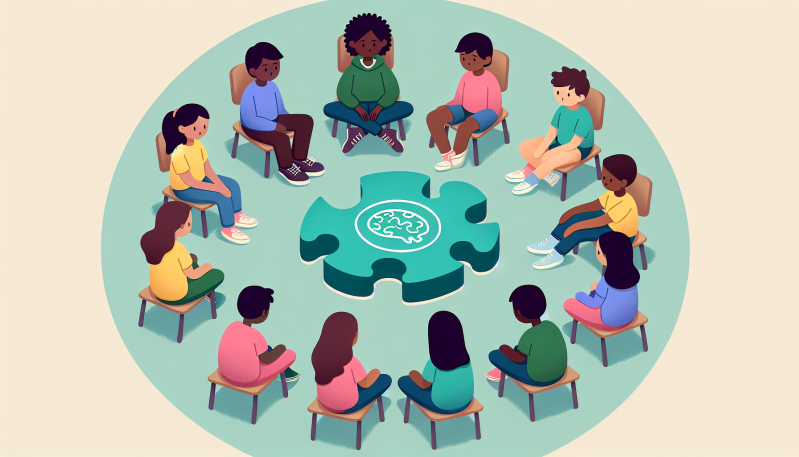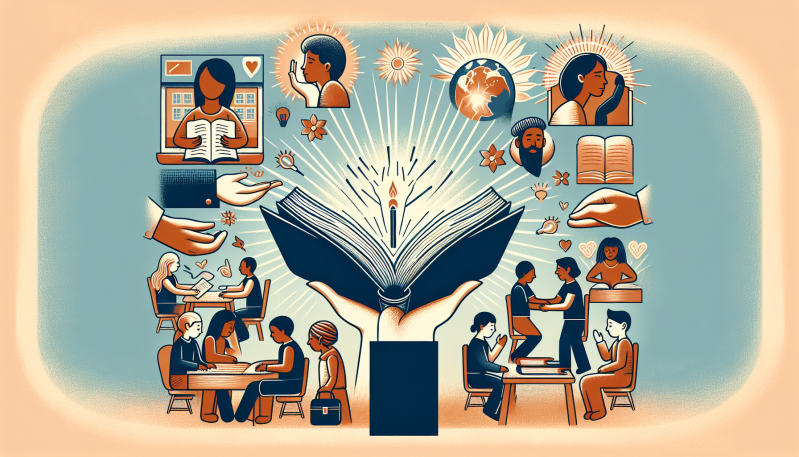In today’s educational landscape, fostering an environment that nurtures emotional intelligence, social skills, and mental wellness is just as crucial as teaching academic subjects. Friendship Week, akin to a beacon of light for school kids and parents, emphasizes the importance of mental health, kindness, loneliness, and diversity, equity, and inclusion (DEI). At the core of our mission is the belief that every child deserves to grow in a community that values personal development as much as intellectual achievement.
As an experienced Restorative Justice Facilitator, I have witnessed firsthand the powerful synergy between a growth mindset and restorative justice in educational settings.
## The Intersection of Growth Mindset and Restorative Justice
Imagine a classroom that goes beyond the black and white of wrong and right and delves into the rich tapestry of learning experiences. Restorative justice in schools is not just about addressing conflicts; it’s about transforming the way students perceive challenges, setbacks, and their relationships with others.
When a student acts out of frustration, possibly due to a perceived inability to succeed, a punitive response may suppress the behavior temporarily, but it doesn’t address the underlying cause. By incorporating a growth mindset—focusing on potential rather than fixed abilities—we can steer the conversation towards understanding the root of the issue and mentor students to see obstacles as chances to learn and evolve.
## Creating an Empathetic Learning Environment
### Teachers: The Guiding Force
Teachers are pivotal in crafting an environment that fosters a growth mindset and practices restorative justice. When educators approach disruptions not as mere disciplinary issues but as learning opportunities, they set the stage for students to engage in self-reflection and take responsibility for their actions in a constructive manner. Professional development workshops on restorative justice techniques and growth mindset strategies can empower educators to lead this cultural shift in the classroom.
### Parents: The Supportive Pillars
Parents also play a vital role by reinforcing the principles of growth mindset and restorative justice at home. Open lines of communication between school and home ensure that the language of growth and understanding resonates through all aspects of a child’s life. Parents can model restorative behaviors by addressing conflicts within the family through dialogue, empathy, and a willingness to learn from each situation.
### Students: The Heart of Transformation
Students themselves are at the heart of this cultural transformation. When they are encouraged to embrace a growth mindset, they learn to see themselves as capable of improvement and resilience. Restorative justice gives them the platform to express themselves, understand the impact of their actions, and collaborate with peers to repair harm and build a stronger, more inclusive community.
## Towards a Culture of Healing and Growth
By integrating restorative justice practices with a growth mindset approach, schools can cultivate an environment that doesn’t simply punish but rather educates and inspires change. This synergy creates a space where challenges become springboards for personal development, empathy is a guiding principle, and every member of the school community contributes to building a compassionate, resilient, and equitable space for all.
In our quest to support mental health and social well-being in educational environments, Friendship Week advocates for these transformative practices. Let us commit to cultivating compassion in our schools, one mindful interaction at a time. Together, we can redefine the meaning of success and encourage our children to grow into well-rounded, emotionally intelligent individuals. Remember, in a garden of compassion, every act of kindness helps us thrive.


